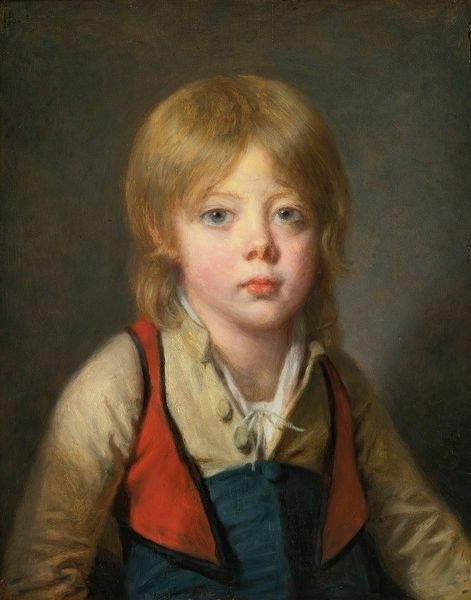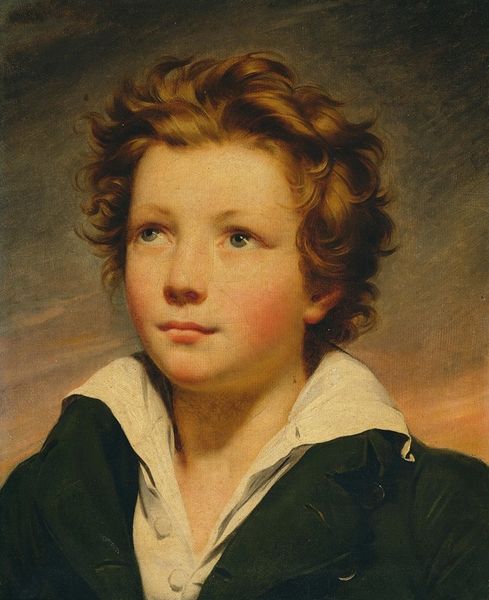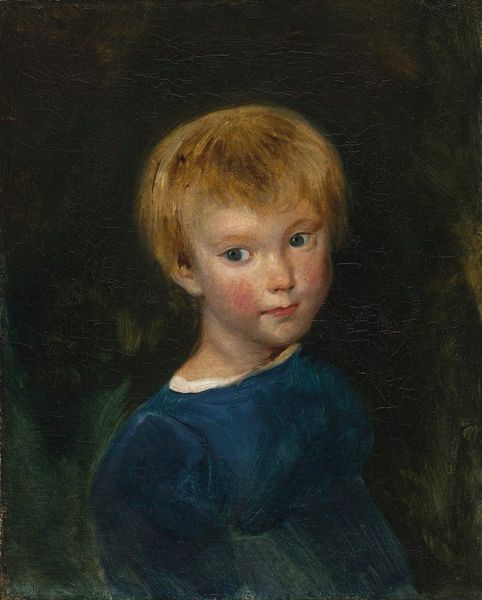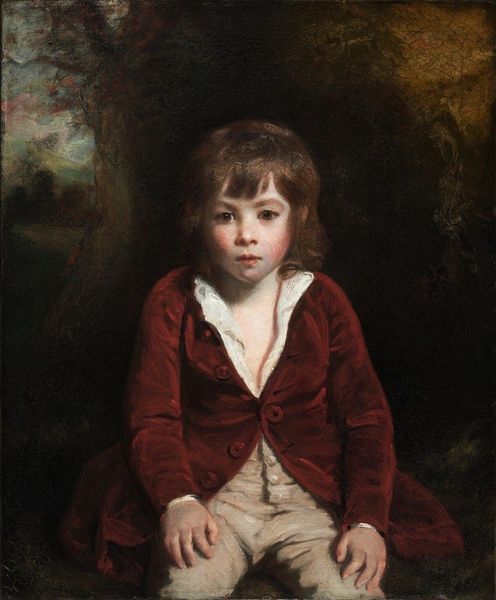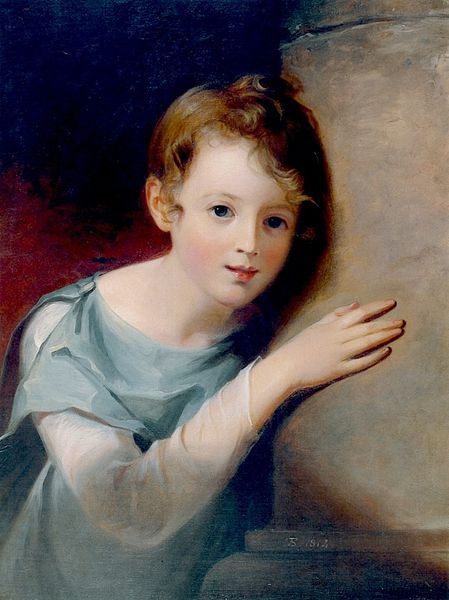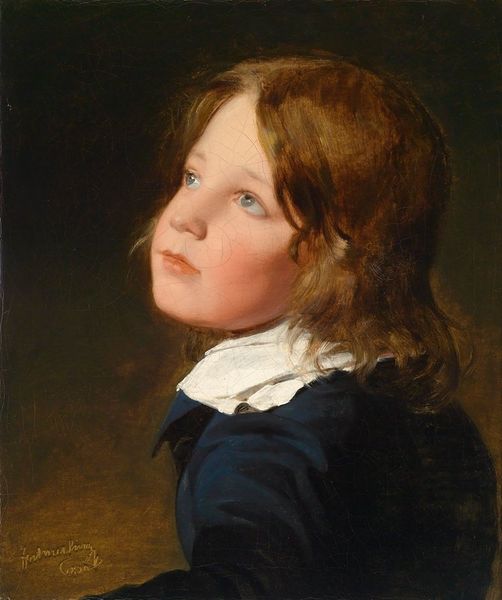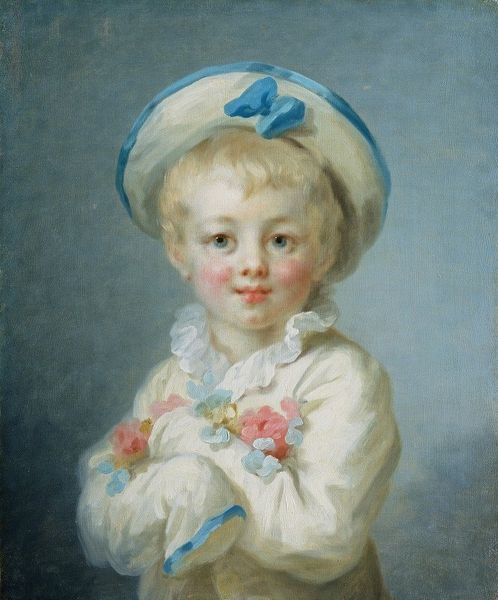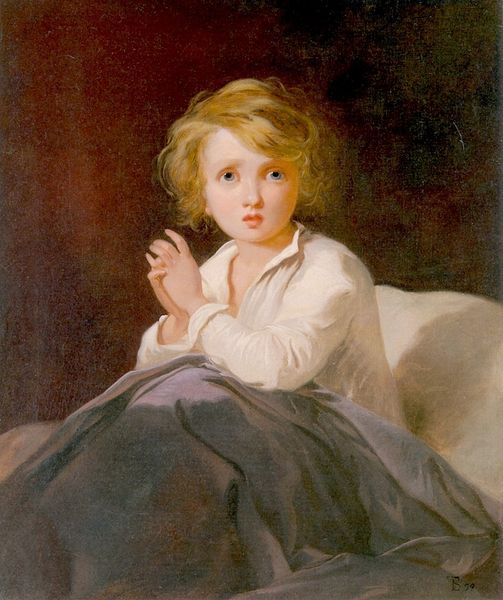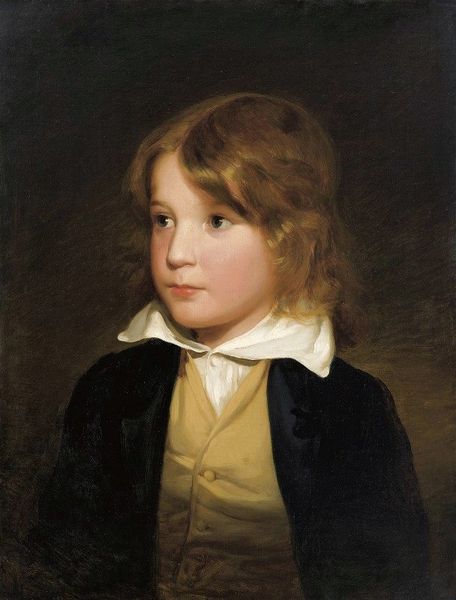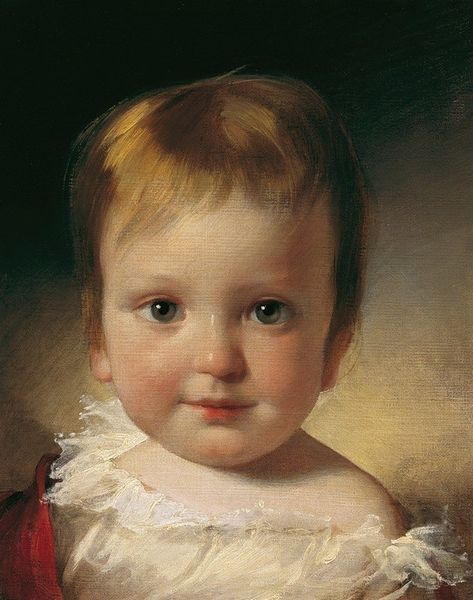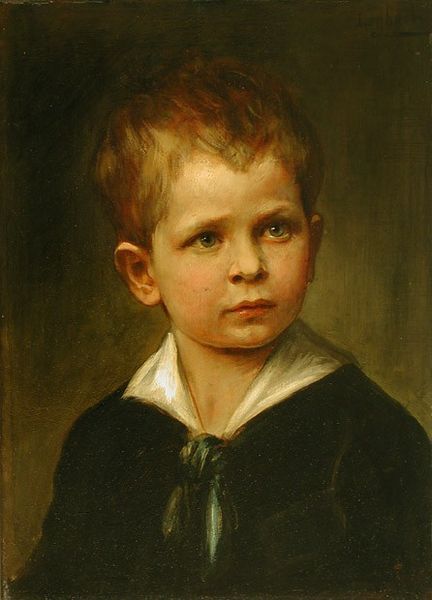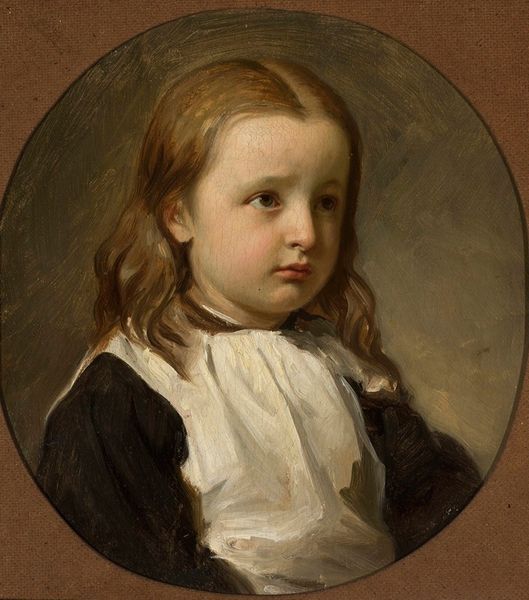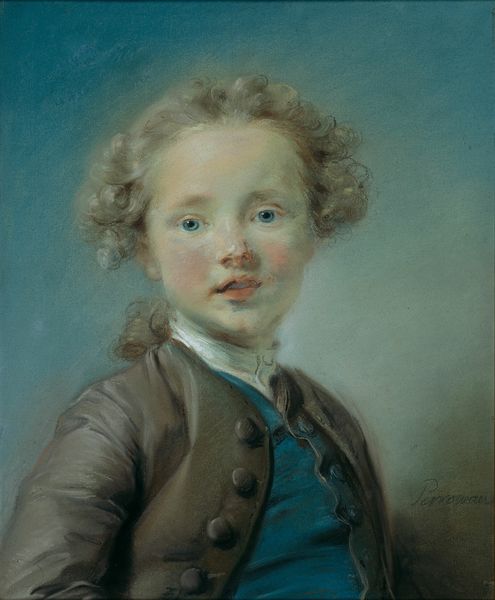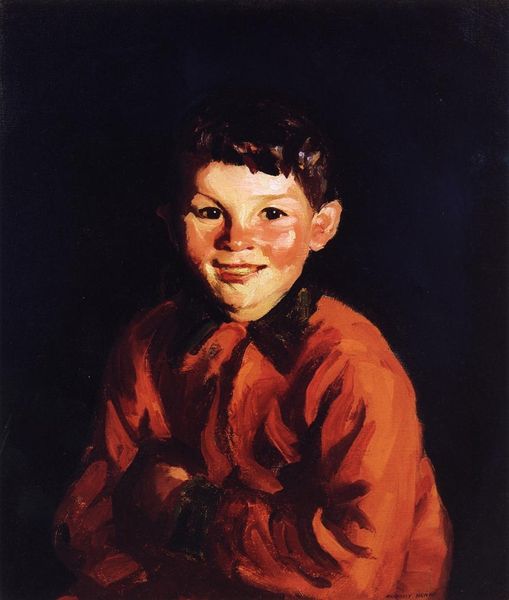
painting, oil-paint
#
portrait
#
painting
#
oil-paint
#
child
#
romanticism
#
genre-painting
Copyright: Public domain
Curator: Let's consider this genre painting by Thomas Sully. It's called "The Torn Hat," painted around 1820 using oil on canvas. Editor: He looks almost melancholic. There’s a sense of premature awareness in his eyes that strikes me. A weight on one so young, amplified by the shadowy treatment of his face under the large brim. Curator: The social context of portraiture, even these more informal genre scenes, played a large role in constructing identity in the early 19th century. Children were being presented less as miniature adults, and more as figures possessing unique innocence and feeling. Editor: Do you think Sully is playing with that very tension? I mean, the torn hat could symbolize lost innocence, while his unwavering gaze implies something much more complex about childhood experience, defying any naive expectations of its simplicity. What does it say, situating him here at the dawn of abolition movements in the U.S., about whose innocence gets preserved or torn? Curator: Well, paintings like these often functioned within complex social structures. Patronage influenced everything from subject matter to presentation. Artists like Sully, while engaging with Romanticism's focus on individual emotion, were also working within existing societal expectations about class and decorum. Editor: Absolutely. And doesn't it make you think of children working during the industrial revolution? A visual argument for social reform wrapped inside sentimental aesthetic choices. Perhaps this pushes back on a purely rosy picture of childhood in order to spark concern about its future for everyone. Curator: Precisely. Sully masterfully captured this duality. His portrait doesn't offer any clear answers but leaves space to ponder these crucial elements that affect social realities, even to this day. Editor: The gaze really holds your attention long after you expected, after the cuteness, the light, the rendering fades out. It lingers, yes, about him, about ourselves.
Comments
No comments
Be the first to comment and join the conversation on the ultimate creative platform.
